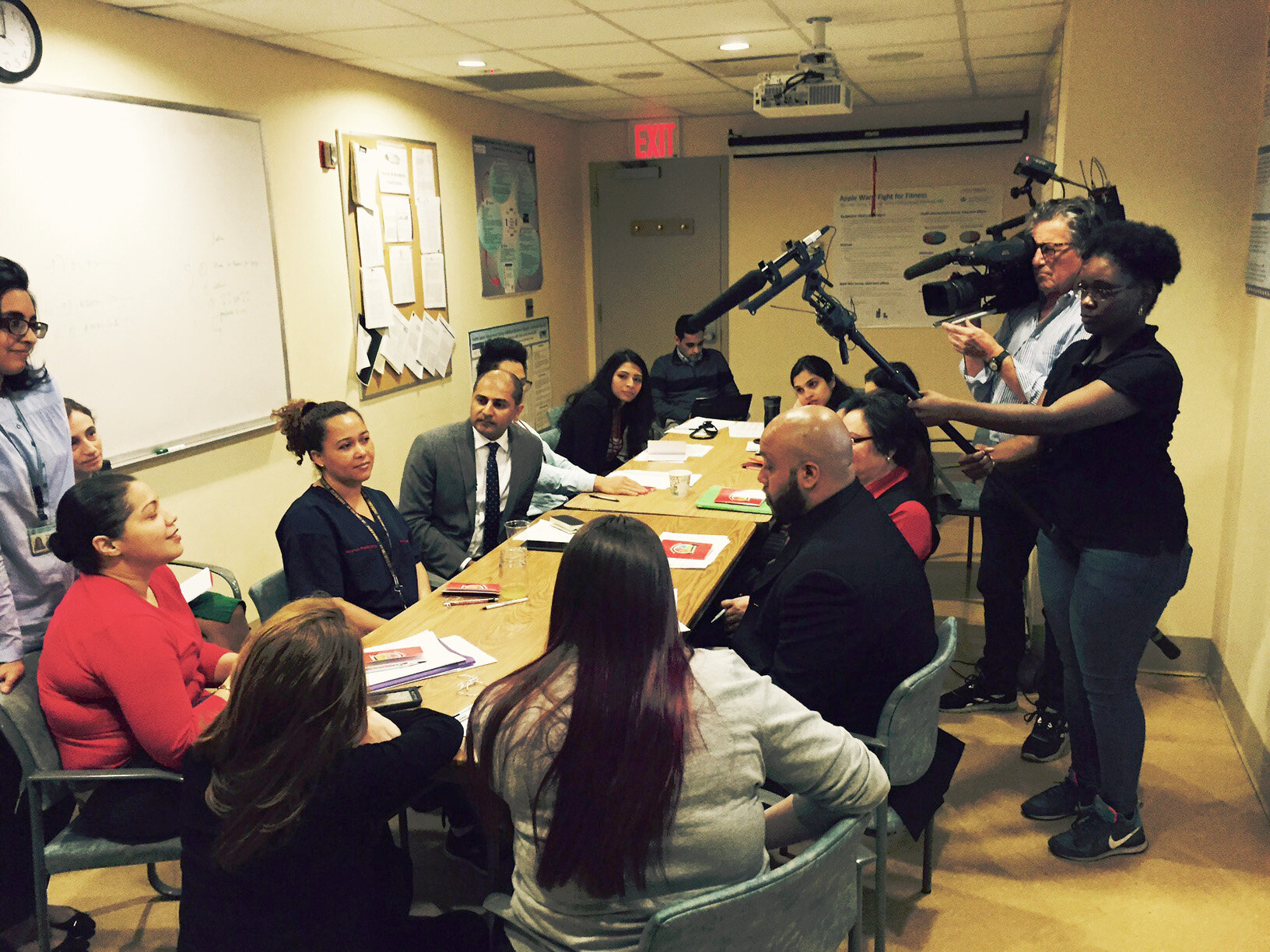A Documentary Film
Why Doctors Write: Finding Humanity in Medicine explores the impact of writing, the arts, and the humanities in a place not usually associated with them - the world of medicine. In an age of technology, physician burnout, and depersonalized patient care, clinicians have turned to these tools to care for themselves and colleagues, and to renew their connection to patients. Why Doctors Write goes in search of the practitioners who are finding humanity again in medicine.
“… a moving and thought-provoking introduction to the benefits of writing in healthcare. The film was the perfect inspiration for our panel discussion with faculty and students, and many audience members left committed to making more time for writing in their busy clinical careers. Bravo to Ken Browne for exploring this important topic so beautifully.”
SYNOPSIS
Why Doctors Write
We meet Dr. Danielle Ofri, an internist at the Bellevue Hospital clinic who writes about her patient Mr. Ayala in her book Journeys with My Patients, as they work through a defibrillator implant procedure that goes wrong. We hear how her writing lead to the founding of the Bellevue Literary Review in 2000, the first writing journal based at a hospital. We also meet students at NYU School of Medicine in a Storytelling and Medicine seminar taught by Sam Shem, author of the classic novel The House of God.
The Stethoscope Replies
Among the many primary care doctors at the Beth Israel Deaconess Medical Center in Boston, unbeknownst to most his clinic patients is one of the best-known physician-poets of our time - Dr. Rafael Campo. Dr. Campo explains his belief in the power of poetry and the humanities as he treats his patient Rob, also a writer, after a diagnosis of ocular cancer. We also watch Dr. Campo and his students in a Writing Workshop at Harvard Medical School around the theme of “grief.”
Anesthesia and the Muse
Dr. Audrey Shafer, an anesthesiologist at the VA Palo Alto Medical Center, was drawn to writing as a medical student at Stanford School of Medicine. Today she directs the Medicine & the Muse program at Stanford, and is one of the founders of The Pegasus Physician Writers group. The film documents her commitment to patients, students, and colleagues expressed through her writing.
What is Narrative Medicine?
Dr. Rita Charon, an internist at Columbia Presbyterian Hospital and professor of medicine at the Columbia College of Physicians and Surgeons spent eight years working towards a PhD in English from Columbia in 1999. Her interest in literature and medicine lead to the creation of the Program in Narrative Medicine, which has grown into an international field of study in medical education. As Dr. Charon and Dr. Deepu Gowda narrate the dramatic growth of Narrative Medicine, we watch Dr. Gowda lead a narrative medicine training at an upper Manhattan family health clinic with the goal of strengthening the cohesion of healthcare teams.
Story Slam: Medical Student Edition
Ohio has been a center for writing and humanities in clinical settings since an NEH grant helped the launch the Center for Literature and Medicine in 1990. Today amidst a vibrant medical humanities community, the Cleveland Clinic Lerner College of Medicine hosts an annual Story Slam by medical students in a downtown Cleveland brewery. The event brings together students for an emotionally charged program featuring guest speaker Dr. Jennifer Adaeze Okwerekwu, a psychiatric resident in Cambridge, MA and a columnist for STAT news.
“Our community immensely enjoyed— and was inspired by—your stellar preview and insightful commentary. ”





